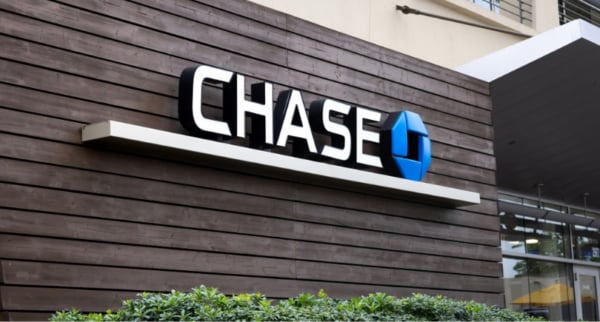Discover it® Secured Credit Card review
A secured credit card that offers rewards is tough to come by, but that is what you will find with this card. This allows you to build your credit history while earning some cash-back rewards along the way.
Discover it® Secured Credit Card
- Rewards
- points_per_dollar
- Regular APR
- reg_apr,reg_apr_type
- Annual Fee
- annual_fees
Key Features
descriptionEditor Analysis:
- This is a unique secured credit card that offers cash-back rewards. Earn 2% back on the first $1,000 spent each quarter at gas stations and restaurants (then, 1%) and 1% on all your other purchases.
- Discover will MATCH all the cash back you've earned at the end of your first year.
- After seven months of responsible use, Discover will automatically review your account monthly to determine whether you're eligible to be transitioned to an unsecured card.
- While there's no annual fee, the minimum security deposit amount could be a stretch for some people at $200. If you can't see coming up with that deposit, there are additional secured credit cards with lower security deposit requirements.
Discover it(R) Secured basics
Just as life doesn’t always go as planned, your credit score doesn’t either. But don’t fret; credit card issuers like Discover won’t leave you out in the cold. For those with less-than-stellar credit, there are secured credit cards and one of the top options is the Discover it® Secured Credit Card card.
The Discover it® Secured Credit Card looks the same as any other credit card, but functions a bit differently. Instead of qualifying for a credit limit based on your credit profile and income, this card requires a security deposit of at least $200, which, if you’re approved based on your credit profile, will determine your credit limit. You can establish your credit line with your tax return by providing a refundable security deposit of at least $200. Bank information must be provided when submitting your deposit. Like a traditional credit card, as you use your credit card, you will need to make payments each month. This credit activity is then reported to the three major credit bureaus so on-time payments and responsible use will help build your credit score up over time. In fact, after seven months your account will be automatically reviewed monthly to see if your security deposit can be returned and the card transitioned to a traditional unsecured card.
To apply, you need to be at least 18 years old, have a Social Security number, U.S. address and U.S. bank account. A minimum security deposit of $200 is required to establish your line of credit with this card, but there’s no annual fee. Your maximum credit limit (up to $2,500) will be determined by your income and ability to pay.
Perhaps most exciting about the Discover it® Secured Credit Card is that this is a rewards card – fairly unheard of in the secured credit card market.
Discover it(R) Secured best features
The best part about the Discover it® Secured Credit Card card is that, despite a credit rating in the less-than-perfect range, with approval and your security deposit you’re still given access to many of the same benefits as someone with good credit. For instance, you’ll earn 2% on the first $1,000 you spend at gas stations and restaurants each quarter and 1% on all your other purchases. Better still, Discover will MATCH all the cash back you earn at the end of your first year as a card member; that means that earning $100 in cash back is actually worth $200 thanks to the match.
Looking ahead, you could also have the opportunity to transition from a secured credit card to an unsecured line of credit as long as you show a pattern of responsible spending and paying over a seven-month period.
Also an excellent feature is the fact that the Discover it® Secured Credit Card does not charge an annual fee – its not unusual for secured credit cards to require both a security deposit and an annual fee to carry the card, so this is a nice perk.
Discover boasts all U.S.-based support centers that don’t just handle questions about missed payments and lost cards. They also form the backbone of an identity theft detection and resolution system that has earned Discover top marks from some of the industry’s toughest critics.
Potential downsides of the Discover it(R) Secured
Although the cash-back rewards associated with the Discover it® Secured Credit Card card entice potential cardholders, the downside is that not every applicant is approved. Approval depends on credit history and other financial variables. If you’re uncertain that you will be approved and don’t want a hard credit inquiry on your report, a different secured credit card might be a better fit for you.
Furthermore, you’ll need at least a $200 security deposit to get started with this card. For some applicants, that might not be an easy task.
How the Discover it(R) Secured compares to other secured cards
Discover it® Secured Credit Card vs. Capital One Platinum Secured Credit Card
discontinued
Both cards report to all three major credit bureaus, but Discover requires at least a $200 security deposit to establish your line of credit, while the Capital One Platinum Secured Credit Card offers an opportunity depending on your creditworthiness of opening an account with a security deposit as low as $49 (your security deposit will be $49, $99 or $200 and will secure an initial credit line of at least $200). You must have access to an authorized bank account which can make your $49, $99 or $200 refundable security deposit. Neither card requires an annual fee.
Because of the cash-back perks, the Discover it® Secured Credit Card could be the better pick for you if you can get the higher initial security deposit together. However, the Capital One card can give you access to a higher line of credit in as little as six months.
Discover it® Secured Credit Card vs. OpenSky® Secured Visa® Credit Card
discontinued
The OpenSky® Secured Visa® Credit Card is a secured credit card option that comes with an annual fee of AnnualFees. Pay your security deposit of at least $200 and enjoy a credit limit of $200-$3,000 (depending upon your deposit amount). You’ll have to deal with an annual fee with this card, but if you foresee wanting a higher credit limit soon, this could be a better option for you. You can also open an OpenSky® Secured Visa® Credit Card without a credit check or even a checking account, so this could be a great option for individuals starting from the ground up with their credit history.
Who should get the Discover it® Secured Credit Card?
If you’re truly trying to rebuild your credit and expect to be able to increase your spending in the next year, the Discover it® Secured Credit Card card is a good option. The opportunity to earn rewards is impressive for a secured credit card, but the match that Discover offers after your first year is truly exceptional. With no annual fee and reporting to all three major credit bureaus, this card is practical for those starting out or starting over on their credit journey.
Frequently asked questions
What is the credit limit on the card_name?
How much should I deposit for the card_name?
Can I increase my credit limit on the card_name?
Does the card_name help build credit history?
Can I use the card_name internationally?
Is the card_name suitable for someone with no credit history?
Our Methodology
Survey methodology: CardRatings commissioned Slice MR in November 2024 to survey 1,666 cardholders nationwide. CardRatings’ website analytics from Jan. 1, 2024-Oct. 31, 2024 were used to determine a selection of the most popular cards. Responses to 10 questions were given on a scale of 1-10. For nine of these questions, respondents’ scores were averaged under broad topics. The overall rating represents an average of respondents’ responses to their overall rating of each card.
Disclaimer:The information in this article is believed to be accurate as of the date it was written. Please keep in mind that credit card offers change frequently. Therefore, we cannot guarantee the accuracy of the information in this article. Reasonable efforts are made to maintain accurate information. See the online credit card application for full terms and conditions on offers and rewards. Please verify all terms and conditions of any credit card prior to applying.
This content is not provided by any company mentioned in this article. Any opinions, analyses, reviews or recommendations expressed here are those of the author’s alone, and have not been reviewed, approved or otherwise endorsed by any such company. CardRatings.com does not review every company or every offer available on the market.










